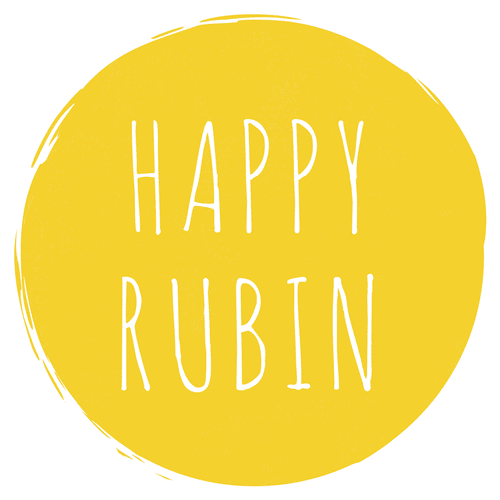![How To Deal With Sensory Overload [9 Tips For Overstimulation]](https://happyrubin.com/wp-content/uploads/2019/12/ik-ben-overprikkeld-150x150.jpg)
Worst Office Language: 54 meaningless words that make you itch

Empty, cringe-worthy, meaningless words and itchy office language… There is no way to make sense of it and we sometimes find it unpleasant. Here is a full list of 55 of the best examples of meaningless itch words.
Contents of this page:
Top 30 itch words in the office
Do itchy words at the office drive you crazy? Below you will find the most important meaningless words. Check out the list, read the rest of this article, and ask yourself how often you use these types of words and what effect they have.
- Processes
- The human factor
- The organizational development
- The mission
- Must provide added value
- Serves to facilitate at
- Creates conditions for
- Should focus on
- Giving direction to
- The implementation of
- The feedback from
- Controlling
- The development of
- The integration of
- Business architecture
- Concept plans
- The synergy with
- The working groups
- Strategic policy
- Crystallize
- Delivering added value
- Being leading
- Call forwarding
- The broad civil society
- I was on the field
- In-company foodcoart
- Performance dialogue
- Customer Journey Expert
- Engagement
- Key message
24 meaningless itch words that just missed the top 30

- Targets
- Milestones
- Business units
- Best practices
- Optimal
- Unambiguous
- Proactive
- Results-oriented
- Efficient
- Supply Chain Processes
- Assessment
- Approach
- The flexibilisation of
- Is closely linked
- Sets requirements
- Is the starting point for
- The management
- The core competence
- Human capital
- Knowledge management
- The sounding boards with
- The first move
- Factors
- Support base
- Back to the core values
- We realize some synergy
- Let’s do agile
- Huge win-win
- We park it until the next meeting
- Be in your power
- Picking up a task
Extreme examples of cringe-worthy office language

I used the above itch phrases and office language to write a Linkedin recommendation for one of my fellow students during my Business Bachelor. An outsider who has not taken this course of study would think it is real:
Omer B. has an eye for detail and has delivered added value in the implementation of complex supply chain processes, in which the importance of strategic policy was paramount. The feedback from the optimal business architecture, with feedback from Mr B. facilitating the milestones, was the starting point in coordinating the working groups. The Human Capital created conditions for the organizational development, whereby there was sufficient support for the processes.
Knowledge management was closely related to the definition of efficient business models, in which the commitment of the sounding boards to Mr B. was decisive. The initial impetus for the concept plans was closely related to the project organization.
Thanks to Omer, the possibilities of coordinating systems were determined in such a way that the relationships are correct. As a result, the organization of management performance could lead to enthusiasm and confidence, resulting in integration of actionable data.
Three years later, I decided to update my recommendation. Again, someone who has not studied business or ICT can take this for real. See the result here:
Three years after my previous recommendation to my associate, supervisor and boss – Omer B. – it is time for an updated recommendation about Omer, his innovation insight and the challenges we faced in the marketplace.
Omer and I pitched a new Straight To Nokia Based Smartphone App together. It is an app for medical professionals who have HPD. This app allows Branded Integrations to work seamlessly with Content Creators. Branded Integrations of a User Side Content Platform are a thing of the past.
For this Omer and I founded the startup M2M Digital together, so that we could focus on SEO and Keyword Rich Trend Tracking. We had great success with that on the Mobile To Mobile Tablet Based Client Side.
For this we used User Testing of an Analytics Perspective tool from Peddle. That is a Strategic Business Unit of KUM Digitals Cloud Source Innovation Fields. To finance this, we raised some capital from a VC Firm in Qatar so it could get off the ground.
M2M Digital works as a Compagnion Service. It links brands with Alpha Based Consumers to match their Tablet Based Peer2Peer Behavior using Multi Stage Engagement.
For example, we deployed a Mobile Based App Farming Product for Realtime Optimization to get churchgoers in the Cloud Based Content Platforms. We did this with our Geo Targeted Ad Serving Platform that focuses on Mobile and Tablet Based companies with an extremely high ROI.
To this end, we have applied AB testing on a variety of markets, HTML 5 Compatible, focusing on User Generated Crowd Sourced Brand Integrations by Tablet and / or Cloud Based Computer Systems.
We also wanted to monitor this for 3rd Parties. For this we have set up new BBM Advertising Ecosystems. The Crowd Tracking Technology amplifies the market dynamics for Social Networking & Media Platforms for Tumblr.
Enough laughter – You can also use itch words for a good cause
Names were once given to specific types of vague office language, categorizing them. Examples of those categories are nominalizations and unspecified verbs.
All these categories can be found in the so-called Milton Model, with which you can influence others thanks to meaningless, vague language. This has a hypnotic effect and can be very useful. Nominalizations and unspecified verbs are ‘meaningless words’, but they are 2 basic elements for influencing with the Milton Model.
Nominalizations and Unspecified Verbs can serve as your starting point to coach your clients and encourage them to change. Nominations are used in combination with unspecified verbs for this. Example: “Experience (unspecified verb) that you are developing helpfulness (nominalization).”
Nominalizations

Nominalizations are vagueness, concepts and terms. You cannot put them in a wheelbarrow. A marble, chair, table or groceries are. They are verbs that have been changed into a noun. That gives it a vague character.
The following sentence already contains 3 nominations:
The build-up, and restructuring of the society.
How high do you think the ‘itch content’ in these nouns that are actually verbs? Namely: ‘building up’, ‘restructuring’ and ‘living together’? If you make them a verb again, they become a bit less vague.
Another example: someone can help their friend, which is a pretty concrete expression. That can change in the nominalization ‘helpfulness’, making it almost itchy again … Or will this have the opposite effect? Can nominations also have a positive effect?
All states of mind (virtues, feelings and capacities) are in principle also nominalizations. Ool the word ‘nominalization’ is nominalization! Let’s find out more: The bold words in the following Milton Erickson quote are nominalizations:
“I feel that you have a particular problem in your living situation that you want to remedy in the right way, and you could already think about what personal qualities you would find best to make this problem disappear. Above all, I know that it is very easy to search for exactly that aid in your past experiences . ”
Erickson has not said anything concrete in the above fragment, while the client can get many solutions from it because there is so much space to give it a personal meaning. So here we come to the usefulness of nominations and vague ‘meaningless language’. Nominalizations that are strongly related to learning and development can be put to good use in your encouragement. Examples of these types of nominations are:
- Realizations
- Meanings
- Understanding
- Insights
- Lighting
- Knowledge
- Decision
- Courage
- Trust
- Satisfaction
- Desires
- Feelings
- Opportunities
- Behaviour
- Communication
- Relationships
- Choices
- Process
- Integration
- Experiences
- Energy
- Luck
- Welfare
- Link
- Good luck
- Connections
- Certainty
- Patience
- Love
- Tools
- Solution
- Solutions
- Expertise
- Excellence
- Productivity
- Safety
- Ways
- Intelligence
- Motivation
- Peace
- Peace
- Unit
- Luck
- Health
- Satisfaction
- Enthusiasm
- Sources
- Skills
- Opportunities
- Balance
- Wisdom
- Satisfaction
- Natural feeling
- Creativity
- Courage
- Thoughts
- Respect (and all other virtues)
An observant client can use the metamodel as an antidote. He can then turn it into a verb again, and include the subject and the leading object again. The nominalization ‘insight’ then becomes: “Who sees what exactly, about what?” Or: “How does this insight come about?” Now it is also easier to do something with it.
Unspecified verbs
A verb is given, but what the verb is for exactly is not clear. “My dad scares me” could mean to someone that your dad is holding a loaded gun to your head, and to someone else it could mean that your dad was sneaking silently across the room for a harmless game.
In addition, there are a number of verbs that are naturally so strong that you don’t have to do anything but just use them. When you hear these words you can do nothing but do what they instruct. So they are highly hypnotic. So use these verbs for your encouragement:
- Experience
- Keep in mind
- Know
- Enjoy
- Understand
- Discover
- Faith
- Make an effort
- Connect
- Integrate
- Learn
- Process
- Trust
- To allow
- Improve
- Refresh
- Imagine. “Imagine” is perhaps the most powerful. You can experience its power by using this in question form with people. For example: “Can you imagine sitting in a tree with me? Can you imagine a pink elephant? Can you imagine yourself as a successful person? ” Also look at the “What if” technique, of which “Imagine” is a part.
- How does it feel when you make contact with the part in your body that feels most comfortable ?
- Imagine if you had the abilities to influence people’s unconscious.
- Realize: “Realize how well you are doing.” “Do you realize how well you are doing?”
- Realize: “Do you realize that you are so good at this?”
- Feel (that deep down)
- Make good contact with …
- Think that / on
- Recognize
- Notice
- Become aware of / that
- Develop
- Find out
- Become
- Remember
- Recognize
- Understand the importance of
- See
- Do that
- Visualize that
- And if you ever wonder …
- Stop!
- Allow that
- Solve
- Earn
- Find
- Strengthen
- Ga
- And that ensures that …
- Work with …
- Go (yes, how exactly?)
- Come
- Help out
- Life
- To give
- Send
- To allow
- Let go
- Enable
- Give direction to
- Wondering / wondering …
Merge nominalizations and unspecified verbs
If you put them together, you can easily start giving hypnotic suggestions. Try playing with unspecified verbs and nominalizations:
While new choices and decisions creates … can you connect touch and understand and to remember what the experiences that you will find fine and that you learn , you new problem solving … in new ways . Confidence is a very relaxing state of mind , full of resources … with increasing availability to you … Enjoy the anticipation …
Of:
So now realize you that there are other ways to be able to see this, is not it?
Of:
Change is important … And maybe you ever thought about the reach of change … yourself wondering how much success you might have .
Of:
I wonder … how quickly you will experience the importance of this work in your life … and whether it will change what you will achieve … or whether it will change your performance … as you will discover it … as the weeks unfold (this is about your NLP study).
Of:
Self-confidence is a very pleasant state of mind , full of resources . You feel balance. And thus is also wisdom , intelligence and solutions . Because the experience of self-confidence can give you a great sense of security . And self-confidence also integrates all those other aspects in your life . And you remember what it was like when you first learned confidence And how the first challenging and it became increasingly easier while the sources found . And you already know that feeling and you wonder how quickly more of it will be available to you.
Also play with some ways in which you can make these suggestions apply to the future. In NLP this is called future pace :
You know that feeling. And you may wonder how soon all those things will be available to you. And while you experience that really well, I wonder where in your future you will feel all that confidence first. The sources of all these moments (name the sources) may be available now and all those steps towards that important future time. You can imagine yourself in those future situations and feel those feelings of success and self-confidence … as you deal with those situations with the resources at your disposal.
And what if you talk to someone who likes details and specificity?
Then you are not talking with abstract language, but with precise language. However, after talking in precise language for a while, you can lead the other person into abstract language. Follow and lead to higher levels of abstraction (chunks) , also making use of the abstract words that the other person already uses naturally. For example:
– I really like details and things with precise analysis and resolution.
– So, Chris, as I understand you feel comfortable with details because the details make your things in new ways can in each set . It ensures that your things can connect and create that have not previously had . Is that correct?
– Yes, I like details because I like to analyze.
– So you like to analyze … What does analysis give you?
– It gives me a lot of clarity.
– So clarity is very important to you. Because it gives you a clear picture of where this is going , and that gives you peace of mind , doesn’t it? A sense of accomplishment . It might even be new opportunities and new thoughts allow you had not previously experienced .
How do you use unspecified verbs, nominalizations and unspecified nouns (found in the milton model) ?

![5 Best Self Care Tips For College Students [#1 Advice]](https://happyrubin.com/wp-content/uploads/2021/09/the-best-self-care-tips-for-college-students-440x264.jpg)
![How To Stick To New Year’s Resolutions: 9 Tips [Smart & Sure Ways]](https://happyrubin.com/wp-content/uploads/2019/12/tips-voor-goede-voornemens-440x264.jpg)
![How To Stop Being So Hard On Yourself [9 Great Tips]](https://happyrubin.com/wp-content/uploads/2019/12/we-moeten-zoveel-van-onszelf-en-anderen-150x150.jpg)

![19 Best Ice Breaker & Get-To-Know-Eachother Games [Fun & Simple]](https://happyrubin.com/wp-content/uploads/2018/02/leukste-ijsbrekers.jpeg)
![Becoming More Social: 41 Tips [Improving Social Skills] [List]](https://happyrubin.com/wp-content/uploads/2018/06/sociale-vaardigheden1.jpeg)
![How to start a conversation with anyone: 15 tips [Making contact]](https://happyrubin.com/wp-content/uploads/2017/08/gesprekstechnieken1.jpeg)
![372 Friend Tag Q&A Questions [Best Friend Quiz]](https://happyrubin.com/wp-content/uploads/2019/05/best-friend-tag-vragen-voorbeelden.jpg)



![Clingy & controlling behavior of partner/date [Extreme examples]](https://happyrubin.com/wp-content/uploads/2020/06/claimerig-gedrag-van-partner-eigenschappen-en-voorbeelden-150x150.jpg)

![How to recognize if a man is in love [Signals & his body language]](https://happyrubin.com/wp-content/uploads/2020/05/verliefd-gedrag-van-mannen-herkennen-150x150.jpg)


![Free will and religion / theology [Verses & Quotes on free will]](https://happyrubin.com/wp-content/uploads/2020/10/religion-on-free-will-quotes-1050x640-1-150x150.jpg)

![Dealing With Setbacks & Hardship [Lessons & Examples]](https://happyrubin.com/wp-content/uploads/2018/11/omgaan-met-tegenslag-tips-hoe-dan.jpeg)
![NLP Agreement Frame: Use these exact sentences [Examples]](https://happyrubin.com/wp-content/uploads/2020/10/agreement-frame-nlp-1125x640-1-440x264.jpeg)
![122 Best Comebacks In Any Situation [Best Examples]](https://happyrubin.com/wp-content/uploads/2020/06/beste-comebacks-technieken-tips-440x264.jpg)
![Using Hypnosis to Stop Smoking [HowTo]](https://happyrubin.com/wp-content/uploads/2020/05/stoppen-met-roken-door-hypnose-150x150.jpg)
![Presuppositions language pattern: meaning & examples [NLP]](https://happyrubin.com/wp-content/uploads/2020/04/wat-zijn-vooronderstellingen-150x150.jpg)
![Peripheral Vision: Meaning & Exercise [Essential Skill]](https://happyrubin.com/wp-content/uploads/2020/04/perifeer-zicht-trainen-tips-150x150.jpg)

![How To Start A Coaching Business [21 Smart Tips]](https://happyrubin.com/wp-content/uploads/2018/11/coachingpraktijk-starten-tips.jpeg)
![How to make dreams come true? [33 tips to realize dreams 100%]](https://happyrubin.com/wp-content/uploads/2018/05/dromen-mijlpalen.jpeg)
![How To Become Rich? 27 Millionaire Tips [Guaranteed To Work]](https://happyrubin.com/wp-content/uploads/2018/01/hoe-kan-ik-rijk-worden.jpeg)
![77 Best Online Marketing Tools [Recommendations] [Also Free]](https://happyrubin.com/wp-content/uploads/2018/08/beste-onlne-marketing-tools-tips.jpeg)
![Complete List Of Virtues & Qualities [Including Explanation]](https://happyrubin.com/wp-content/uploads/2018/12/kernkwaliteiten-uitleg.jpeg)
![Being Attentive: How Do You Do That? [Meaning & 9 Tips]](https://happyrubin.com/wp-content/uploads/2019/05/attent-zijn.jpg)
![Being Conscientious: Meaning Of This Virtue [Explained]](https://happyrubin.com/wp-content/uploads/2018/07/Consciëntieus-persoon.jpg)


![Best Books About Burn-Out [Top 10] [Update 2025]](https://happyrubin.com/wp-content/uploads/2020/06/beste-boeken-over-burnout-lijst-440x264.jpg)
![Best Self-love Books [Top 10] [Update 2025]](https://happyrubin.com/wp-content/uploads/2020/04/beste-boeken-over-zelfliefde-aanraders-440x264.jpg)
![Life changing books: 10 books that change your life [2025 Update]](https://happyrubin.com/wp-content/uploads/2020/03/levensveranderende-boeken-tips-150x150.jpg)
![Top 10 Best Books: Recommendations Per Genre [2025 Update]](https://happyrubin.com/wp-content/uploads/2019/12/best-books-per-genre-150x150.png)
![Best Books On procrastination: Must Reads [List] [2025 Update]](https://happyrubin.com/wp-content/uploads/2019/11/beste-boeken-over-uitstelgedrag-tips-150x150.jpg)
![Joe Dispenza: Events To Attend [2025 & 2026] [All Info]](https://happyrubin.com/wp-content/uploads/2020/02/joe-dispenxa-events-440x264.png)
![Best Online Study Options [Online Education Top List]](https://happyrubin.com/wp-content/uploads/2019/03/best-home-study-options-440x264.png)
![Teachable Review & Experiences 2025 [Bad Online Training Tool?]](https://happyrubin.com/wp-content/uploads/2020/02/Teachable-review-ervaringen-150x150.png)
![Audible Review, Experiences & Special Discount [Scam?]](https://happyrubin.com/wp-content/uploads/2020/01/audible-review-ervaringen-150x150.png)
![Guest Posts Wanted [Free & Always Directly Accepted]](https://happyrubin.com/wp-content/uploads/2019/05/gastbloggen-regels.jpg)
